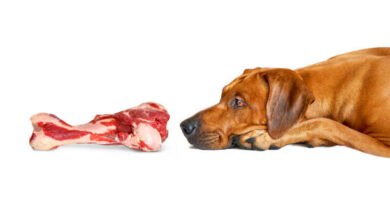
Can dogs eat Brazil nuts? Many dog owners may wonder if these large, nutrient-rich nuts are a safe snack for their furry friends. While Brazil nuts are not toxic to dogs in small amounts, they pose several health risks, including digestive issues, high fat content, and potential selenium toxicity. Understanding how Brazil nuts affect your dog’s health is crucial to ensuring their safety and well-being.
In this article, we’ll explore Can dogs eat Brazil nuts and the nutritional value of Brazil nuts, their potential dangers, signs of toxicity, and safer treat alternatives for dogs.
Nutritional Profile of Brazil Nuts
Brazil nuts are packed with essential nutrients, but their high-fat and selenium content make them unsuitable for dogs. Below is a breakdown of their composition per one ounce (about six nuts):
- Calories: 187 kcal
- Fat: 19g (mostly unsaturated fats)
- Protein: 4g
- Fiber: 2.1g
- Selenium: 544 mcg (far beyond a dog’s daily requirement)
- Magnesium: 107 mg
- Phosphorus: 198 mg
- Vitamin E: 1.6 mg
While these nutrients are beneficial for humans, excessive consumption in dogs can lead to serious health concerns.
How Brazil Nuts Affect a Dog’s Health
1. High Fat Content and Risk of Obesity
Brazil nuts contain a very high percentage of fat, which can contribute to weight gain and obesity in dogs. Since dogs require a well-balanced diet with controlled fat intake, consuming high-fat foods like Brazil nuts can disrupt their nutritional balance.
- Decreased energy levels
- Difficulty walking or running
- Visible fat accumulation around the ribs and belly
- Heavy breathing even with minimal activity
2. Pancreatitis: A Dangerous Condition
Excessive fat consumption can also lead to pancreatitis, a painful and potentially life-threatening condition in dogs.
Symptoms of pancreatitis in dogs include:
- Vomiting
- Diarrhea
- Loss of appetite
- Abdominal pain
- Lethargy
Dogs that are prone to digestive issues or have a history of pancreatitis should never be given Brazil nuts.
3. Digestive Issues and Stomach Upset
Brazil nuts are difficult for dogs to digest, leading to stomach discomfort and intestinal distress. Even a small amount can cause:
Diarrhea – Loose stools due to excessive fat content.
Vomiting – Indicating an inability to digest the nuts.
Bloating & Gas – Caused by undigested fats sitting in the stomach.
Loss of Appetite – If your dog refuses food after eating Brazil nuts, it may be a sign of digestive distress.
4. Selenium Toxicity: A Hidden Danger
Brazil nuts are one of the richest natural sources of selenium, an essential trace mineral required in small amounts. However, excessive selenium intake can be toxic to dogs.
Symptoms of Selenium Toxicity in Dogs:
- Weakness & Lethargy – Dogs may appear tired or unresponsive.
- Vomiting & Diarrhea – Signs of severe digestive upset.
- Hair Loss – Excess selenium can lead to hair thinning or bald spots.
- Neurological Symptoms – Tremors, uncoordinated movements, or difficulty walking.
- Severe Cases: Organ Damage – High selenium levels over time can damage internal organs.
Even one or two Brazil nuts can exceed a dog’s daily selenium requirement, making them unsafe for regular consumption.
5. Choking Hazard and Risk of Intestinal Blockage
Brazil nuts are large and hard, making them a choking hazard—especially for small and medium-sized dogs. If swallowed whole, they may also cause intestinal blockage, requiring emergency medical attention.
What to Do If Your Dog Eats a Brazil Nut
If your dog has eaten a Brazil nut, follow these steps:
- Assess the Situation – Determine how many nuts were eaten and the size of your dog.
- Look for Immediate Symptoms – Watch for choking, difficulty breathing, vomiting, or diarrhea.
- Monitor for Delayed Reactions – Signs of selenium toxicity or pancreatitis may appear hours or days later.
- Provide Fresh Water – This can help with digestion and hydration.
- Contact Your Veterinarian – If your dog ate multiple nuts or is showing any symptoms, seek veterinary advice.
- Avoid Giving More Nuts – Even if your dog seems fine, it’s best not to offer Brazil nuts again.
Safer Alternatives to Brazil Nuts for Dogs
If you’re looking for healthy and safe treats, consider these dog-friendly alternatives:
✔ Carrots & Cucumbers – Low-calorie, crunchy, and great for dental health.
✔ Apples (Seedless) – Naturally sweet and rich in fiber.
✔ Blueberries & Strawberries – Packed with antioxidants and vitamins.
✔ Pumpkin & Sweet Potatoes – Excellent for digestion and overall health.
✔ Peanut Butter (Unsalted & Xylitol-Free) – A delicious and safe treat in small amounts.
✔ Dog-Specific Treats – Specially formulated to meet your dog’s dietary needs.
These treats provide better nutrition without the risks associated with Brazil nuts.
Frequently Asked Questions About Dogs and Brazil Nuts
1. Can One Brazil Nut Hurt My Dog?
A single Brazil nut is unlikely to cause severe harm, but it can lead to stomach upset or selenium buildup over time. If your dog eats one, monitor for symptoms and contact your vet if necessary.
2. Are Any Nuts Safe for Dogs?
Some nuts, like peanuts (unsalted) and cashews (in moderation), are safer options. However, always avoid macadamia nuts, walnuts, pecans, and Brazil nuts, as they pose serious risks.
3. Can Brazil Nuts Be Used in Homemade Dog Treats?
No, Brazil nuts should not be included in homemade dog treats due to their high fat and selenium content. Instead, use dog-safe ingredients like oats, pumpkin, or apples.
Final Verdict: Can Dogs Eat Brazil Nuts?
So, can dogs eat Brazil nuts? The answer is no, they are not recommended. While they are not immediately toxic, they pose significant health risks, including digestive issues, obesity, pancreatitis, choking hazards, and selenium toxicity.
If your dog eats a Brazil nut, monitor them for symptoms, provide water, and contact your vet if necessary. In the future, opt for healthier, dog-safe treats that provide essential nutrients without the risks.
As always, consult your vet before introducing new foods to your dog’s diet. By making informed choices, you can keep your furry friend happy, healthy, and safe!



